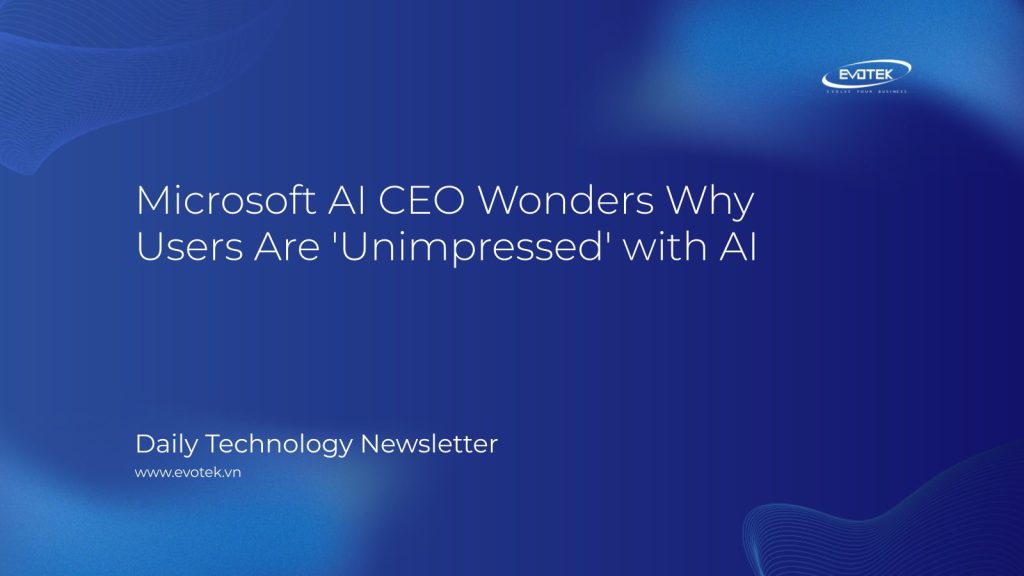The rapid integration of artificial intelligence into nearly every product by tech giants has often been met with a more cautious, if not skeptical, reaction from the general public. This growing disconnect was recently highlighted by Microsoft AI CEO Mustafa Suleyman, who expressed considerable bewilderment regarding public sentiment towards AI.
Suleyman, a prominent figure in the AI landscape, took to social media to share his surprise at what he described as people being “unimpressed” by the advancements in artificial intelligence. This came in the wake of significant user backlash following comments earlier this month from Windows and Devices President Pavan Davuluri.
Davuluri had outlined a vision for Windows evolving into an “agentic OS,” a system designed to seamlessly connect devices, the cloud, and AI. This declaration, however, triggered a wave of criticism. Users largely voiced concerns that Microsoft was prioritizing AI tools, which many felt were underutilized or unnecessary, over addressing long-standing, fundamental issues within the Windows operating system.
Responding to this wave of dissatisfaction, Suleyman stated he found it “mindblowing” that anyone could be “unimpressed that we can have a fluent conversation with a super smart AI that can generate any image/video.” He characterized those questioning Microsoft’s aggressive push for AI as “cynics.”
However, many users swiftly clarified their stance. The core of their “unimpressed” reaction wasn’t a dismissal of AI’s technological marvels or its potential. Instead, their frustration stemmed from Microsoft’s perceived strategy: integrating AI into every facet of its products primarily to appease shareholders, rather than focusing on pressing user needs.
The prevailing sentiment among users is a desire for Microsoft to dedicate resources to improving core user experience elements. This includes enhancing Windows’ user interface to be more intuitive, reminiscent of earlier versions like Windows 7, bolstering security measures, and demonstrating a more serious commitment to user privacy. The debate underscores a critical divergence between the ambitious visions of tech leaders for an AI-powered future and the practical, immediate concerns of their everyday user base.

 日本語
日本語 한국어
한국어 Tiếng Việt
Tiếng Việt 简体中文
简体中文